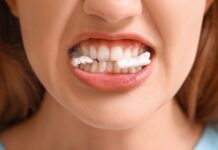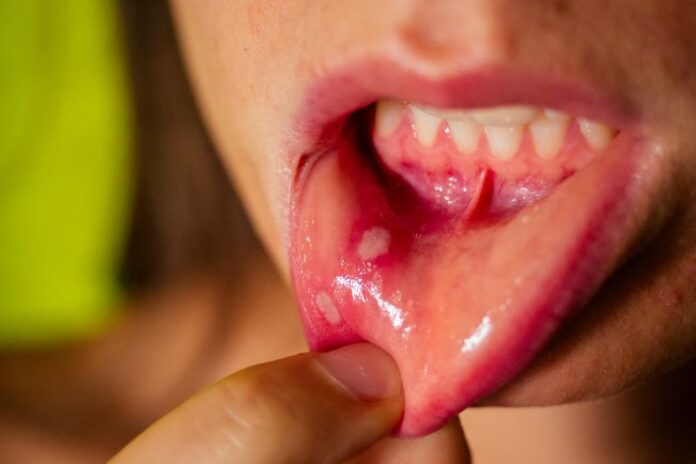Affiliate Disclaimer
Some links in this article are affiliate links. We may earn a small commission if you make a purchase through these links, at no extra cost to you. We only recommend products we find useful to our readersDo mouth ulcers make it challenging to talk and eat? Every bite might become painful, and every word can become uncomfortable due to these tiny but bothersome sores. Finding quick treatment is crucial, whether you have a small ulcer from biting your cheek by accident or a chronic sore brought on by stress or malnutrition.
Although there are over-the-counter remedies, they frequently include strong chemicals that can aggravate the condition or provide short-term respite without treating the underlying problem. However, natural treatments offer a safer, kinder, and frequently more efficient means of treating mouth ulcers by lowering inflammation, easing discomfort, and encouraging tissue healing.
This article will examine 15 effective home cures. Prepare to learn about traditional healing techniques that can help you get rid of mouth ulcers quickly and naturally!
Read More: 11 Ways to Heal Cracked Mouth Corners & Relieve Pain!
What are Mouth Ulcers?
Any sore that develops inside your mouth is called a mouth ulcer. You may have one or more of these sores, often red, yellow, or white. A mouth ulcer occurs when a portion of the mucous membrane, the sensitive tissue lining the mouth’s interior, is lost or eroded.
Various factors can cause mouth ulcers. Injury is the most frequent reason (e.g., biting the inside of your cheek by mistake). Additional reasons include aphthous ulceration, certain drugs, oral skin rashes, bacterial, fungal, viral infections, and medical problems.
Ulcers in the mouth can be concerning. However, they cannot be contracted or spread through sharing food and beverages or kissing, and they are not sexually transmitted infections (STIs). Aside from pain and discomfort, mouth ulcers are generally benign and resolve independently in a week or two.
Home Remedies for Mouth Ulcers
Home remedies are among the easiest yet most effective treatments for mouth ulcers. This section will discuss common and some unknown remedies for fast-curing mouth ulcers.
1. Salt Water Rinse

A saltwater rinse is a straightforward yet efficient treatment for mouth ulcers. It lessens inflammation, dries up the sores, and guards against infection. Half a cup of warm water should dissolve one teaspoon of household salt.
Before spitting the solution out, swirl it about your mouth for 15 to 30 seconds. Salt’s antibacterial qualities hasten the healing process. Repeat this procedure throughout the day or every few hours for optimal effects.
2. Honey

Honey’s potent antibacterial and anti-inflammatory qualities make it a great natural cure for healing mouth ulcers at home. It lessens the size of mouth sores, reduces discomfort and swelling, and prevents infections from worsening.
Its calming properties encourage quicker recovery. For best results, apply a tiny bit of raw, organic honey straight to the ulcers three or four times daily. Regular treatment speeds up the healing process and guarantees discomfort relief.
Read More: Causes of Blood Blister in Mouth and Treatment
3. Baking Soda Paste
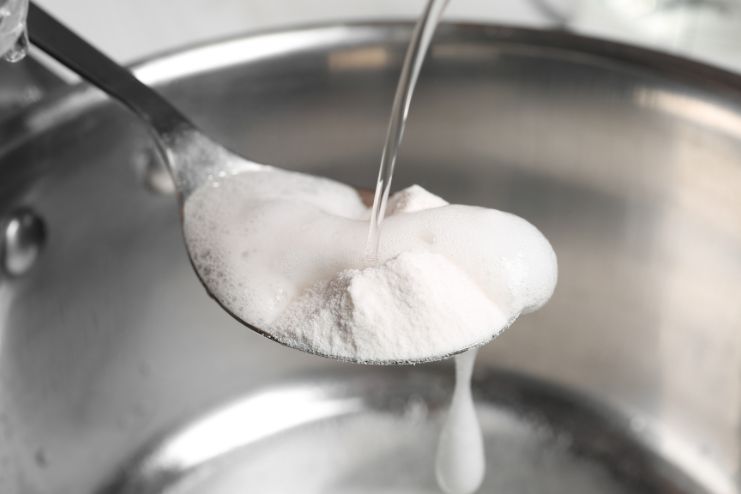
Baking soda is alkaline, which helps fight any excess acidic properties in and around the canker sores. Not just that, but baking soda also has antimicrobial properties, which help kill microbial growth in the oral cavity.
Make a paste from baking soda and a small amount of water, then apply it straight to the ulcer. Baking soda lowers pain and inflammation and neutralizes acids.
4. Zinc Supplements
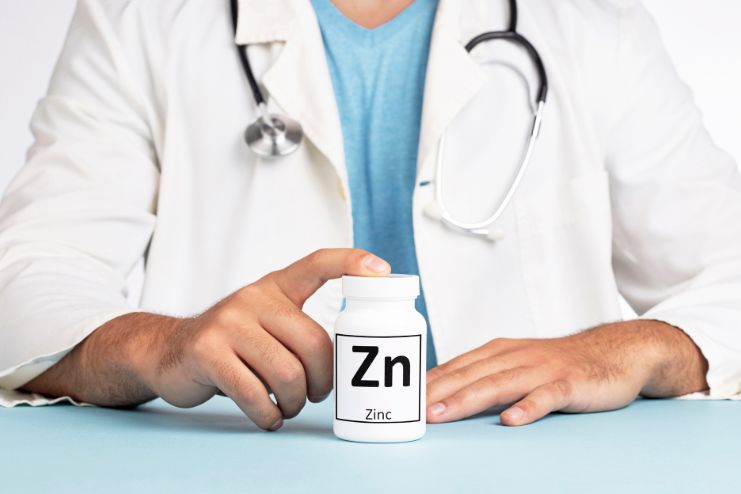
Mouth ulcers may indicate nutritional deficiencies. Iron, folate, B12, and zinc deficiencies are frequently the cause. Supplementing with zinc can boost immunity and reduce ulcer recurrence. Zinc’s function in cell growth and repair is essential for dental health. But take the prescribed dosage precisely as directed.
Consuming too much zinc might be detrimental. Before beginning any supplement regimen, consult your healthcare provider for a correct diagnosis and tailored guidance.
5. Apple Cider Vinegar

Apple cider vinegar is a common home cure for several illnesses. Its capacity to eradicate bacteria can improve your mouth ulcer. However, if you are in agony, choose another cure because the vinegar may sting when it comes into contact with the ulcer.
After combining one teaspoon of apple cider vinegar with one cup of water, rinse for 30 to 60 seconds. Rinse your mouth with normal water after spitting to avoid causing damage to tooth enamel from the vinegar. Use apple cider vinegar to rinse just once every day.
Read More: 10 Effective Ways To Treat Tongue Problems
6. Aloe Vera Gel
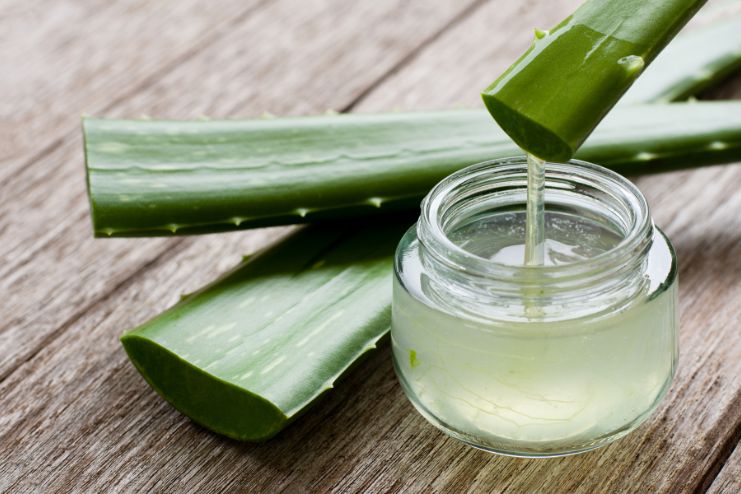
Aloe vera may hasten the healing of painful mouth ulcers by providing calming relaxation. For localized relief, apply the gel made from the aloe vera plant directly to the ulcer. On the other hand, drinking aloe vera juice may have systemic advantages.
Aloe vera’s many uses go beyond ulcers; it can heal cold sores and chapped lips. Its inherent moisturizing and anti-inflammatory properties support general mouth comfort and health.
7. Chamomile Tea

Chamomile tea is a mild, all-natural treatment for mouth ulcer pain. Its calming qualities can considerably lessen discomfort. Apply a cooled chamomile tea bag directly to the ulcer for focused relief. Alternatively, rinse your mouth with cooled chamomile tea to relieve generalized irritation.
Chamomile’s anti-inflammatory and mild antibacterial properties aid in healing and soothe irritated mouth tissues. This easy at-home treatment can provide noticeable relief from ulcer pain.
8. Coconut Oil

Coconut oil’s antimicrobial properties make it an excellent remedy for bacterially caused mouth ulcers. Furthermore, coconut oil prevents the spread of illness. Due to its superior anti-inflammatory qualities, it lessens pain and redness in the surrounding area. To treat mouth ulcers naturally, liberally apply coconut oil to the ulcer using a cotton ball or fingertip.
Read More: 7 Benefits Of Gargling With Hydrogen Peroxide – What You Need to Know!
9. Clove Oil
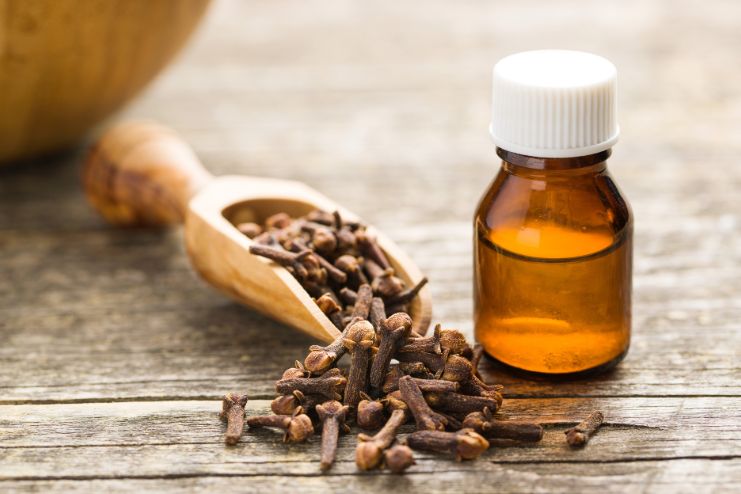
Mouth ulcers, those bothersome sores, are uncomfortable. Clove oil, with its analgesic qualities, provides a natural cure. A study published in Contemporary Clinical Dentistry has shown that a gel made of clove oil is effective in treating dental discomfort.
Direct application to the ulcer provides targeted treatment. The eugenol in the oil reduces inflammation by numbing the affected area. Clove oil is easily accessible at most pharmacies and provides a straightforward remedy for oral pain.
10. Sage Mouthwash
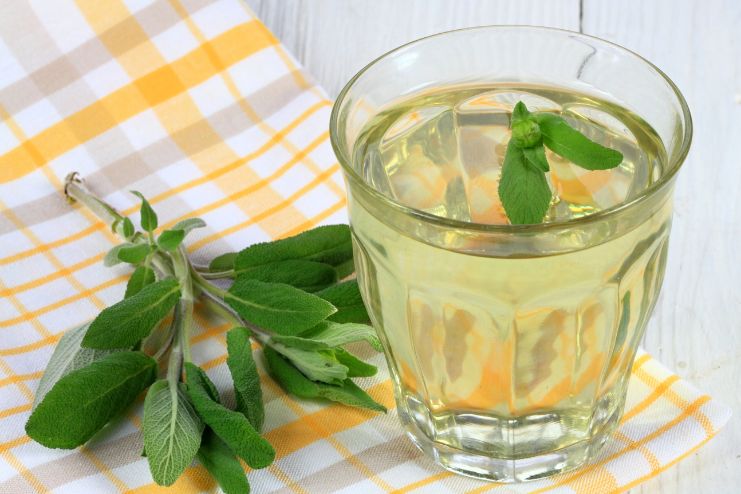
Sage’s inherent antibacterial qualities make it a rapid treatment for mouth ulcers. A powerful mouthwash can be made by boiling fresh sage leaves, draining the liquid, and letting it cool. After 30 seconds of swishing this sage-infused water, spit it out.
This regular application may heal ulcers in as little as one day by promoting swift recovery. Sage is an effective treatment for oral lesions due to its natural ingredients that combat bacteria and lessen inflammation.
11. Turmeric Paste
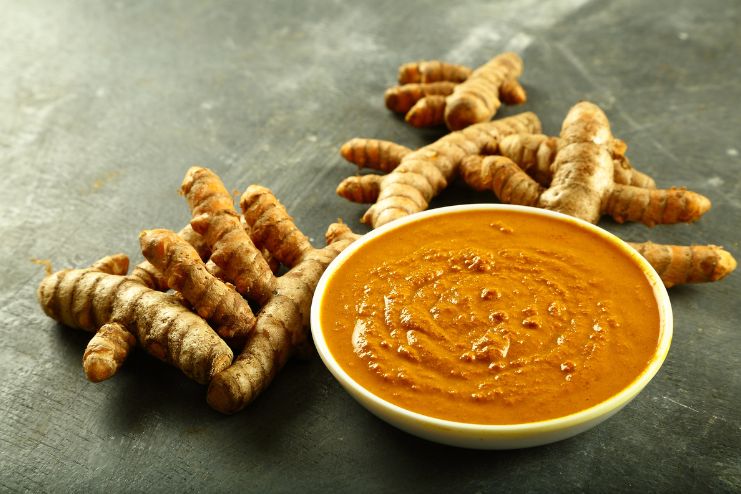
Turmeric’s strong antibacterial and anti-inflammatory properties make it a natural remedy for mouth ulcers. Mix a pinch of turmeric powder with water to make a basic paste. Apply this directly to the ulcer’s area and let it sit for a few minutes.
After that, rinse well with water. Repeat this application twice a day for best results. Turmeric’s natural ingredients help reduce inflammation and hasten the healing process of damaged oral tissue.
Read More: 19 Top Home Remedies for Tongue Sores and Blisters
12. Garlic

Garlic, which is well known for its strong antibacterial qualities, is a direct treatment for mouth ulcers. The active ingredient present in garlic, allicin, can be applied to the affected area by gently rubbing a freshly cut clove on it for a few minutes. This all-natural antibiotic has antibacterial and anti-healing properties.
Even though garlic has a strong flavor, its potential for quick ulcer alleviation makes it a valuable treatment. However, exercise caution because some people may experience a burning sensation with garlic.
13. Coriander Seeds
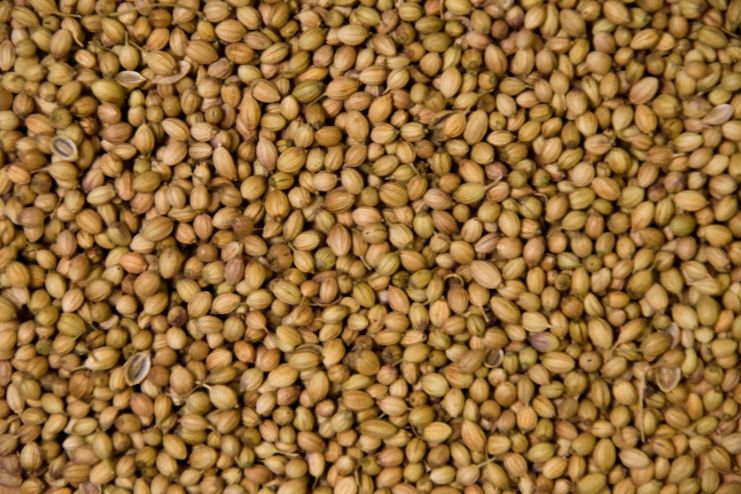
Coriander seeds make a calming rinse for mouth ulcers. A quick and easy mouthwash can be made by boiling coriander seeds in water and then filtering the resulting liquid. Regularly rinsing with this solution can considerably reduce ulcer discomfort and inflammation.
Coriander’s inherent anti-inflammatory qualities soothe irritated tissues and aid in healing. This mild treatment supports the body’s healing process and provides a very natural solution to oral discomfort.
14. Vitamin B12

Vitamin B12 is essential to preserve dental health and hasten the healing of mouth sores. Eating foods high in B12 or taking supplements directly can help resolve deficiencies that lead to ulcers. This vitamin promotes tissue repair and cell regeneration to heal from oral injuries.
Consuming enough B12 can encourage a healthy oral environment and hasten the healing process from painful mouth ulcers. Consult a healthcare provider before beginning a new supplement regimen.
Read More: 9 Health Problems That Salt Water Gargle Can Cure Amazingly
15. Maintain Your Dental Health
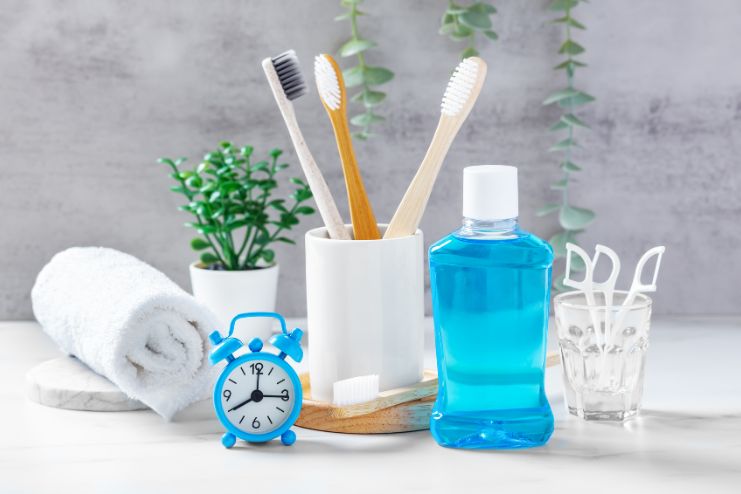
Keeping your mouth clean is essential to treating mouth ulcers. When cleaning teeth, use a soft-bristled toothbrush, being cautious not to get any contact with the ulcer. Choose toothpaste that doesn’t contain sodium lauryl sulfate (SLS), a typical foaming agent that can aggravate sores and irritate delicate oral tissues.
Gentle cleansing encourages healing and reduces additional aggravation. Regular, thorough hygiene procedures reduce pain and suffering and foster an environment favorable for ulcer recovery.
Types of Mouth Ulcers
The majority of standard mouth ulcers are witnessed on the inside of the cheek, which heals in a matter of a week or so without much medical intervention. That being said, there are a few categorizations of the various types of mouth ulcers based on their severity.
The top three types of mouth ulcers include:
1. Herpetiform Ulceration (HU)
These start as a collection of tiny ulcers that have the potential to grow into more prominent lesions. Their resemblance to the herpes-related lesions gives them their name. However, they are not contagious and have nothing to do with the herpes virus. They usually heal in 1-2 weeks and are the least prevalent ulcer.
2. Minor Ulcers
These are categorized as mouth ulcers, which range around 5 mm in diameter and inflict a minimal amount of pain and irritation. For the most part, they last up to 1-2 weeks since their inception.
3. Major Ulcers
These are categorized as mouth ulcers, which are often bigger in size than minor ulcers and go deep into the skin. They often tend to take a good chunk of time to heal completely and need effective over-the-counter remedies to get it sorted out for good. They are often irregular in shape and cause inflammation, too.
What Causes Mouth Ulcers?
Similar to the different kinds of mouth ulcers, these skin sores and tissue tears in the oral cavity have identical origins. What sets the ulcer apart from its particular category is the variety of causes, which likewise range from minor to severe.
Common causes behind mouth ulcers:
- Excessive smoking followed by abrupt quitting of the habit
- Ill-fitted braces that rub against the inner lining of the oral cavity and gums
- Excessive consumption of acidic foods like citrus fruits, oranges, lemons, lime, etc
- Lack of essential vitamins in the body like Vitamin B-12, folate, zinc, iron, etc
- Any infection in the mouth
- Stress and anxiety
- Any injury inflicted caused while brushing or accidentally biting on the inside of the mouth
Medical causes behind mouth ulcers:
- Celiac disease, also known as gluten intolerance
- Behcet’s disease induces inflammation throughout the body of an individual
- Lack of proper immunity
- HIV/AIDS
Read More: How To Deal With My Bleeding Gums?
Symptoms of Mouth Ulcers
Depending on the cause, mouth ulcer symptoms might vary. However, they usually include:
- Aching sores that could be red, white, or yellow
- Sores inside the mouth, such as those on the inside of your lips, cheeks, or tongue
- Red spots encircling the wounds
- Discomfort that gets worse when you talk, eat, or drink
You can develop multiple mouth ulcers simultaneously.
Mouth ulcers are typically not infectious unless they are brought on by an infection, such as hand, foot, or mouth disease.
Twenty percent of people will experience a canker sore at least once, making it the most prevalent type of mouth ulcer.
How to Prevent Getting Mouth Ulcers?
While there could be an array of underlying reasons behind possible mouth ulcers, there are even better ways to prevent them.
Some of the standard modes of prevention of mouth ulcers include:
Having a healthy diet is a must when it comes to prevention.
- Acidic fruits and compounds, such as citrus fruits, pineapples, strawberries, or something extremely hot and spicy, should be avoided. Nuts and chips should also be avoided until the ulcer heals completely.
- Go for food rich in multivitamins. Include whole grains and other healthy fruits and vegetables with alkaline properties.
- Avoid talking while chewing food because you might accidentally bite yourself, which can cause ulcers and canker sores.
- Maintain healthy oral hygiene.
- Sleep and rest properly to ensure overall well-being
- Avoid using soft bristle toothbrushes and pastes that contain sodium lauryl sulfate.
FAQs
- How Long Does it Take for Mouth Ulcers to Heal?
The majority of mouth ulcers, also known as canker sores, usually go away on their own in one to two weeks. However, it’s crucial to see a doctor or dentist if they cause serious issues or last longer than three weeks.
- Are Mouth Ulcers Common in Pregnancy?
Indeed, canker sores, another name for mouth ulcers, are widespread during pregnancy and are frequently brought on by immune system weakness and hormonal changes.
- Can Mouth Ulcers Get Infected?
Yes, although mouth ulcers are often harmless and self-healing, they can periodically get infected, mainly if they are significant or severe, which can cause fever, redness, or more substantial pain.
Read More: How to Treat Bumps on Lips
Conclusion
Natural treatments provide a mild yet efficient means of alleviating mouth ulcer symptoms. The treatments, which range from the calming effects of honey and aloe vera to the purifying advantages of saltwater rinses, can lessen discomfort, inflammation, and the chance of infection. They are frequently accessible at home, reasonably priced, and inexpensive.
Experimenting with these treatments can offer substantial comfort if you’re suffering from mouth ulcers. Consistency is essential for the finest outcomes. With proper care and adequate oral hygiene, most mouth ulcers heal in one to two weeks.
However, speaking with a healthcare provider is advisable if your symptoms intensify or continue. With time and appropriate strategy, you can relieve your sores and regain a pain-free smile.
-
Aug 2018Written by Somapika D
-
April 2025Edited by Ankita
References
- https://www.nhs.uk/conditions/mouth-ulcers/
- https://www.betterhealth.vic.gov.au/health/conditionsandtreatments/mouth-ulcers
- https://my.clevelandclinic.org/health/diseases/21766-mouth-ulcer
- https://www.colgate.com/en-gb/oral-health/gastrointestinal-disorders/ways-to-get-rid-of-mouth-ulcers-naturally
- https://www.medicalnewstoday.com/articles/317984#types
- https://pmc.ncbi.nlm.nih.gov/articles/PMC1071433/
- https://www.healthline.com/health/mouth-ulcers#symptoms
In this Article













